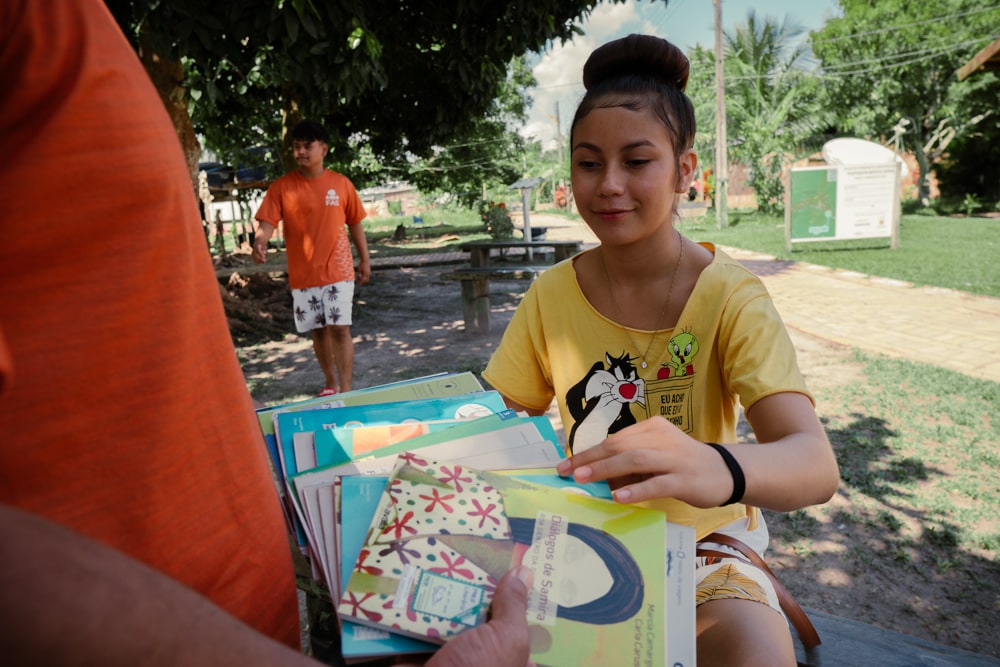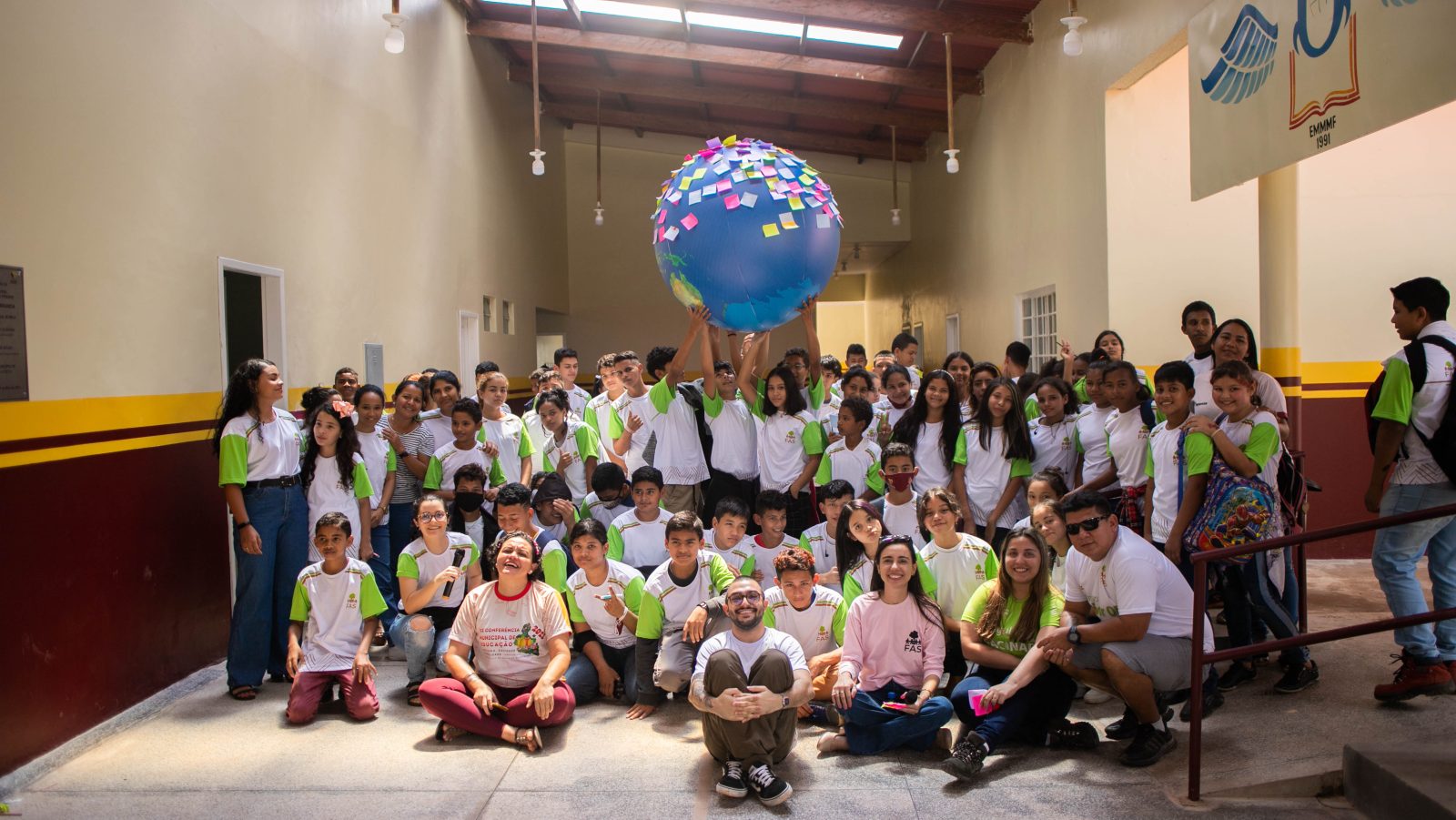School dropout rates (-87%) and the rate of undocumented youth (-84%) were reduced in areas with education projects promoted by FAS between 2019 and 2022. The number of cases of children and adolescents involved with drugs and alcohol also fell (-62%) between 2020 and 2022
Public and quality education for all is a reality that still does not reach most people in the Amazon, especially in the interior and urban peripheries. Compared to other regions in Brazil, the Amazon has the lowest number of enrolled students and the highest dropout rates in high school in the country. On the other hand, only 25.6% of children up to 3 years old are enrolled in schools, according to the report of the Amazon 2030 project. Reapproaching local youth to educational spaces and promoting future possibilities, allied to conservation and citizenship, is part of the Foundation for Amazon Sustainability´s history.

Photo credit: Samara Souza
Through the Project for the Integral Development of Riverine Children and Adolescents from the Amazon (Dicara), FAS works in remote areas of the territory with a focus on integration and preparation of young people for active and citizen participation in their localities and for the care of the environment. In partnership with city halls and state agencies, the program has already engaged more than 4.3 thousand people in 10 municipalities, 170 communities, 5 suburbs and 9 Conservation Units (UCs).
FAS invests in the power of information and in the guarantee of the basic right to education, with all the potential that it can offer, in order to face the problems lived in Amazonian riverside communities, such as digital exclusion, domestic and sexual violence, and drug abuse. Computer classes, music classes, handicrafts, and encouragement to the practice of sports, from capoeira to volleyball, offered by a team of about 300 tutors, are among the activities that integrate Dicara.

Seminar held by FAS as part of the Dicara project actions in Presidente Figueiredo (AM). Photo credit: Larissa Silva
Adriane Silva, 16, has been participating in the initiative for three years. For the resident of the town of Uarini, in Amazonas, the experience of the courses brought significant results to her life. “I had the opportunity to take computer and environmental education courses, where we are taught how to take care of the community and nature. The knowledge we gained in the classes allows us to teach people in our families and friends who never had this opportunity, passing the knowledge to the community on how to conserve the place where we live”.
Meet Adriane: participant in the education projects of the Foundation for Amazon Sustaintability
With the increased interest and involvement of young people, school dropout was reduced by 87% in places with the presence of the program between 2019 and 2022. In the same period, the number of children and adolescents without official documentation fell by 84%. FAS’ actions also contributed to the reduction of drug and alcohol use among youth by 62% between 2020 and 2022.
The lessons learned and the knowledge shared in the classes enable the youth to take on positions of protagonism and be future leaders in their communities. “We felt that they took responsibility. They learned that you can’t use drugs. Girls of 16, 14 years old cannot get pregnant. This project has really brought us very good knowledge”, says Raimundo Araújo, representative of the RDS Amanã.
For its relevant contributions in this field, in 2019, the Foundation for Amazon Sustainability (FAS) became the first Brazilian and South American institution in history to receive the Unesco-Japan Prize in Education for Sustainable Development (ESD).
Access the booklet “Young Leaders of the Forest”, which deals with education and citizenship issues focused on the riverside realities of youth in the Amazon:

